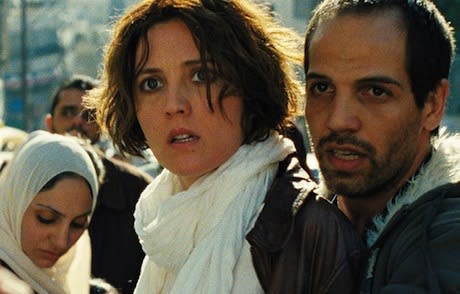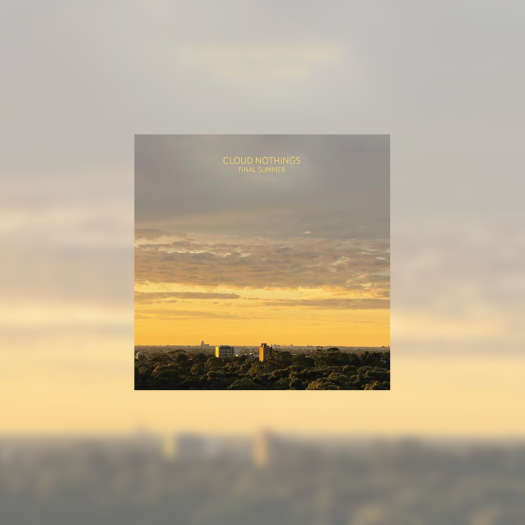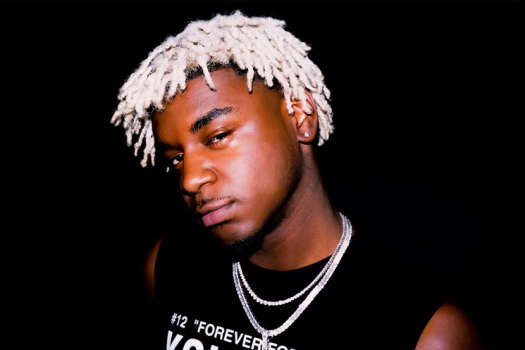Chloé (Evelyne Brochu), a Quebecois doctor working within Palestinian territory, travels back and forth across the West Bank border, where her Israeli neighbour and friend, Ava (Sivan Levy), works as a soldier. Filled with ideals and likely compensating for an absent father figure by enacting a projected saviour complex, she befriends expecting Palestinian mother Rand (Sabrina Ouazani) and her politically active husband, Faysal (Yousef Sweid), frequenting their print shop, populated with martyr posters, and helping out at the dump, where trash is scavenged for possible resale. These actions, along with the witnessed horror of a young Palestinian boy being driven over by Israeli soldiers without consequence, guide the narrative trajectory of the politically motivated, stone-faced Inch'Allah. The film rests upon its examination of a complex conflict on an idealistic outsider perspective and the assumption that external aid can in some way be a remedy to a problem that plagues these nations, and the world, well outside of disputed and undisputed borders. Director Anaïs Barbeau-Lavalette treads lightly on the material, showing the good and bad of both sides of the situation, demonstrating mainly that the scars run too deep for any sort of kind gesture or well-intentioned action to prompt any type of emotional healing. But in playing it safe and drawing her parallels so broadly, focusing entirely on exactly how both sides perpetually encroach upon each other, reacting aggressively to any minor slight, Barbeau-Lavalette sacrifices substance and basic connective characterization. Beyond the plot machinations and didactics, Chloé's character breakdown is overly simplistic. She's obviously distraught by the state of things in the Palestinian state, discussing it with her similarly broad friends on both sides of the border, but never do the discussions or character portraits transcend politics or superficial niceties. All conflict stems from broad remarks about political actions, which are partially removed from the individuals heatedly reacting to them. No tender humanity or solidifying connectivity are displayed, making the obvious exploitation of Chloé by her new Palestinian friends far too obvious and clumsy for the film to work effectively. And since the overall vision is that of gritty, handheld realness, there's no lyrical or emotional dimension added to this overly dry and obvious bit of political posturing to leave room for personal interpretation. Instead, Inch'Allah plays like a better-than-average, well-acted and well-shot social studies project, laying out a world issue for introductory debate. Similarly broad is the short film included with the DVD. Nous Sommes. Kevin Papatie's environmentalist plea is merely a brief montage about the dangers of pollution, which is sort of a moot point.
(eOne)Inch'Allah
Anaïs Barbeau-Lavalette

BY Robert BellPublished Jun 25, 2013



